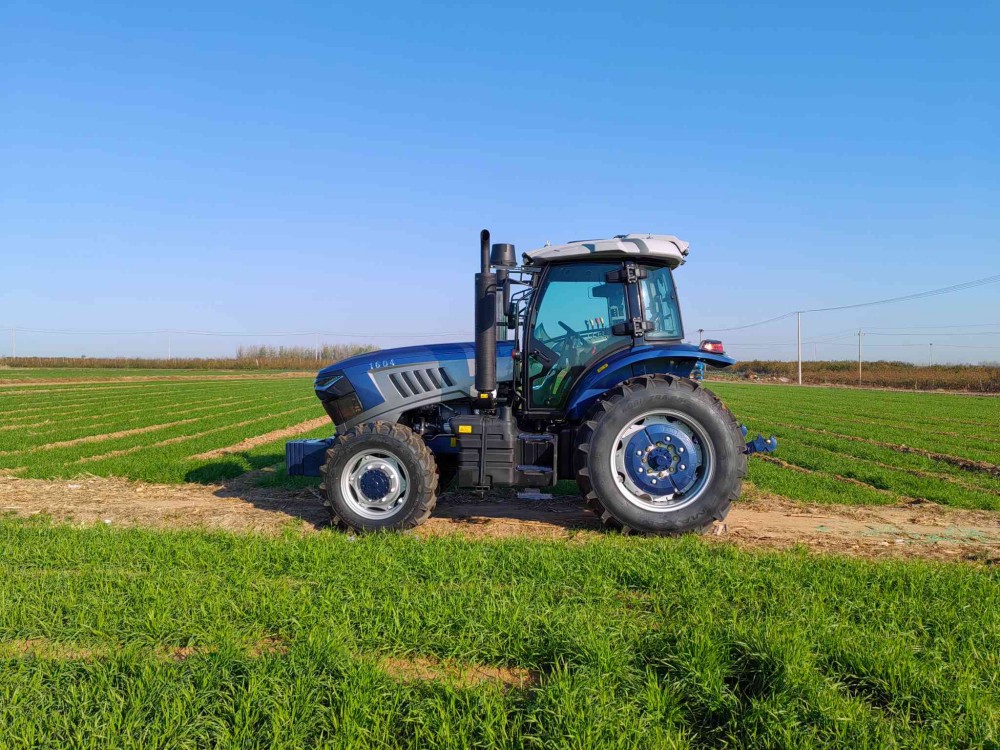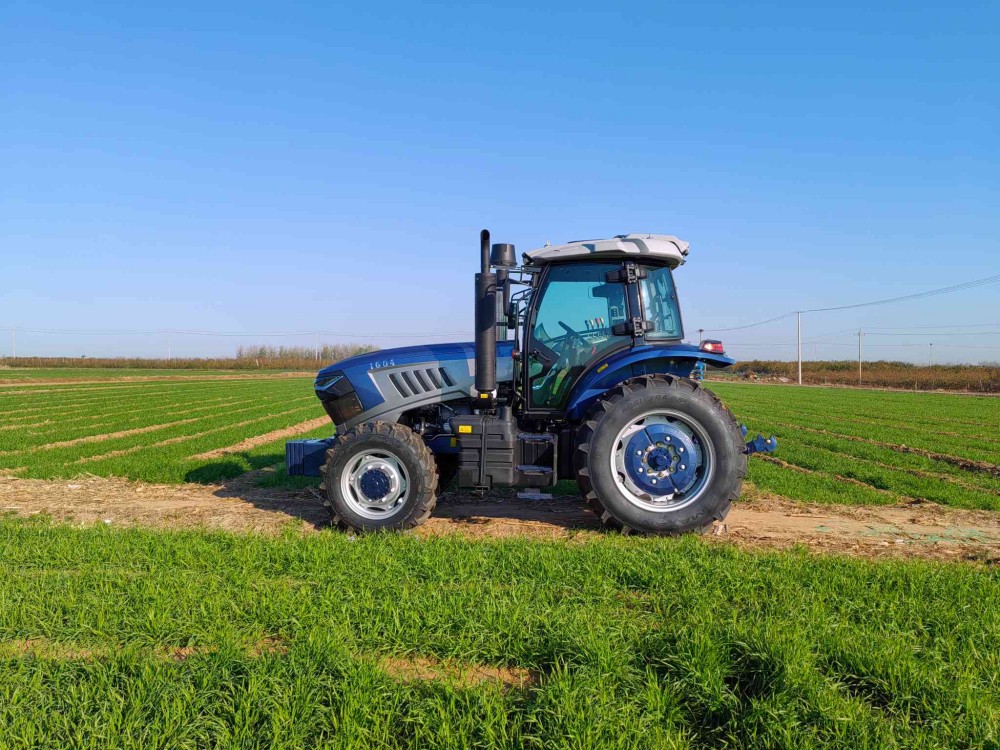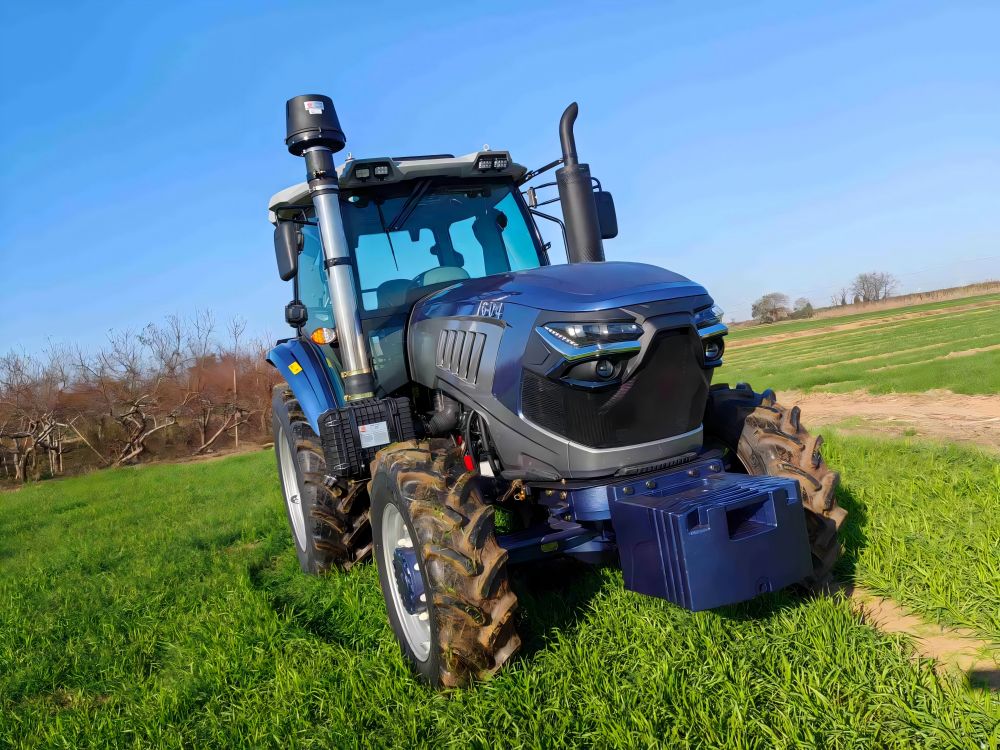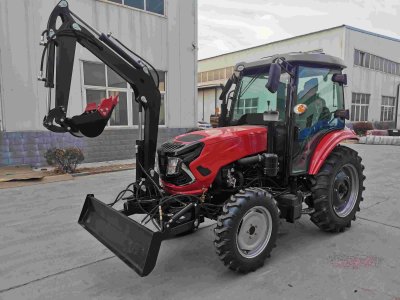China Africa relations enter a new stage, agricultural cooperation takes big strides forward
As of the end of last year, China had established 24 agricultural technology demonstration centers in Africa, promoting over 300 advanced agricultural technologies such as corn
planting and vegetable cultivation, benefiting more than one million small farmers in Africa.
——————————
When the overall positioning of China Africa relations is elevated to a new height of all-weather China Africa community with a shared future in the new era, the prospects for
cooperation between the two sides in the field of agriculture are increasingly attracting attention.
In November of this year, at the 7th China International Import Expo, high-quality African agricultural products such as South African avocados and Rwandan honey sold well and
shone brightly, making China Africa agricultural cooperation once again the focus; In December, China will continue to upgrade its market dividends and grant 100% tariff free
treatment to all least developed countries that have established diplomatic relations with China, including 33 African countries
A series of favorable conditions and opportunities, like a wildfire, have ignited the enthusiasm for further cooperation in agriculture between China and Africa. This year we sent a
delegation to Africa, which is really changing rapidly compared to 10 years ago, "Fan Xuebin, director of Beijing Jingwa Agricultural Science and Technology Innovation Center,
recently revealed to reporters from China Youth Daily and China Youth Network. As the driving force for Beijing to build the" Agricultural Zhongguancun ", Jingwa Center will focus
on internationalization in Africa in the coming period.
This is a decision that conforms to the national strategic development, meets the needs of technological exchange, and conforms to business logic, with unlimited potential,
"Fan Xuebin pointed out. China Africa agricultural cooperation has a long history, and after entering a new stage, both sides are actively seeking new opportunities and focus
points to deepen cooperation. How to cultivate the flower of friendship that promotes and benefits agriculture has become an important issue that urgently needs to be addressed.

How can the Chinese experience take root in Africa
Agriculture has always been a key area of China Africa cooperation and has achieved remarkable results. Data shows that as of the end of last year, China had established 24
agricultural technology demonstration centers in Africa, promoting over 300 advanced agricultural technologies such as corn planting and vegetable cultivation, benefiting more
than one million small farmers in Africa.
China's mushroom grass technology has spread to more than 100 countries, driving employment and income growth for over 30000 people in Rwanda, and is praised as the
"grass for wealth" and "grass for happiness"; The "South China 5" cassava from the Chinese Academy of Tropical Agricultural Sciences has been promoted in Africa, with a yield
level four times higher than local varieties; Chinese hybrid rice has "taken root" in more than 20 African countries, promoting the increase of rice production from an average of
two tons per hectare to 7.5 tons in multiple countries, and has also been printed on Madagascar's largest denomination banknotes.
In the view of Simeon Ehui, Director General of the International Institute of Tropical Agriculture and Regional Director for Africa at the Consultative Group on International
Agricultural Research (CGIAR), the main reason why the Chinese experience can take root in Africa is that both sides face common challenges in addressing population growth,
climate change, and sustainable agricultural practices, which provides broad space for innovative cooperation between the two sides.
Professor Li Xiaoyun from China Agricultural University believes that one of the reasons is that as an emerging economy, China's development process and experience over the
past few decades are highly correlated with the modernization needs being promoted in Africa. He mentioned that, like Africa, small farmers are also the main form of agricultural
development in China. Some agricultural technologies and management models suitable for small farmers in China can provide reference for African small farmers.
For example, the labor-intensive technology adopted by China in corn cultivation has significantly improved land use efficiency and labor productivity through simple technical
solutions such as applying high-quality seeds, dense planting, moderate fertilization, and increasing the frequency of tillage and weeding, providing valuable experience for Africa
to break through capital and technological bottlenecks.
Sun Hao, Chairman of Beijing Wode Chenlong Biotechnology Co., Ltd., also expressed similar views. In 2023, the laying hens and broiler chickens cultivated by the company
were successfully exported to Tanzania. Previously, local chicken breeds were mostly imported from Europe, with extremely high market costs. However, as a developing country,
China's breeding technology is more suitable for the breeding level of developing countries
But Li Xiaoyun also believes that Africa cannot simply copy China's experience and needs to adapt to local conditions.

Small technology can also bring Dafengshou (Salad of assorted fresh vegetables)
What exactly is needed for the development of agriculture in Africa? At the recently held parallel conference on agricultural technology cooperation between China and Africa at
the 2024 World Agricultural Science and Technology Innovation Conference, hundreds of guests including government officials, technical experts, and entrepreneurs from
international organizations and both China and Africa had a special discussion on this topic. Some people call for stronger financial support from Central Africa to encourage
African countries to increase investment in agricultural research and development, while others emphasize the importance of farmer organization and improving global trade
governance.
However, the attendees reached a consensus on one point: China Africa agricultural technology cooperation has broad prospects and will play a greater role in promoting
agricultural development and food security in Africa in the future. In response, Sun Qixin, President of China Agricultural University, shared successful cases of agricultural
technology promotion in African countries such as Tanzania, stating that small technologies may also play a significant role.
In 2021, China Agricultural University launched the "Small Bean Big Nutrition" project on the basis of increasing local corn production in Tanzania, planting soybeans in corn
fields. "In order to help local farmers consume soybeans, we also brought some simple and easy to use tools for soybean milk beating, such as the family hand operated soybean
milk stone mill, which are popular with local farmers." Sun Qixin pointed out that processing soybeans into soybean milk not only extends the industrial chain, but also improves
the protein intake of local residents.
As the project leader, Li Xiaoyun said that his more than 10 years of experience working in Tanzania have made him deeply realize that solving agricultural problems in Africa
requires starting with simple concepts. In rural areas of Africa, simple and practical agricultural techniques are often more effective than large modern equipment. For example,
compared to expensive and bulky machines, the low-cost corn processing equipment introduced can be used by farmers every day at a cost of only 1-2 yuan, significantly
improving processing efficiency.
Li Xiaoyun pointed out that in the agricultural cooperation between China and Africa, we should start from the actual needs and not blindly pursue large-scale modern equipment,
simple and practical ways of dense planting corn, manual corn threshers and family hand soybean milk stone mills and other "small and beautiful" technologies and tools. The
seemingly simple technological innovation actually promotes the integrated development of agricultural production, soil health and human nutrition, and can effectively solve the
practical problems in Africa's agricultural development.

Risk and opportunity coexist
China Africa cooperation is a mutually beneficial two-way street, "Ehui said. Both sides can deepen exchanges in fields such as agricultural mechanization, digital agriculture, and
biotechnology, and jointly develop innovative solutions that meet the needs of both sides. However, there are also challenges in the cooperation process, such as lack of
infrastructure and political instability.
Jean Jacques Mbonigaba Muhinda, Regional Director of the African Green Revolution Alliance, recalled that after communicating with many companies, he found that many
companies have excellent technological solutions that can shine in Africa after adjustment, but the implementation effect is not ideal. It may be due to a lack of understanding of
the specific situation in the African market or unfamiliarity with the local culture
Muhinda stated that some powerful companies also face certain challenges and difficulties when entering the African market due to various restrictions, including insufficient
understanding of the investment process on the continent. Regarding this, Cheng Cheng, the head of the Asian representative office of the Alliance for a Green Revolution in
Africa (AGRA), suggests that companies conduct careful research, view risks as business opportunities, and avoid insufficient understanding or overconfidence about Africa.
Chinese companies should view Africa as an excellent business opportunity and not have a mindset of doing charity or practicing ESG (environmental, social, and corporate
governance), "said Cheng Cheng." As long as we conduct careful research, the opportunities and profit margins contained in Africa are extremely promising and satisfactory.
"Sun Hao, based on his personal experience, suggested that Chinese companies can seek partners who understand the local situation.
Language barriers have been frequently mentioned by multiple interviewed companies, becoming one of the "roadblocks" hindering agricultural exchanges and cooperation
between China and Africa. Wilfred Kadewa, Executive Vice President of Malawi University of Technology, stated that due to difficulties in communication with China in fields such
as engineering and technology, the university has established a Chinese language program dedicated to translating numerous excellent technologies from Chinese into the local
language of Malawi.
We are a very young university, with young teachers and students, "Kadewa said, hoping to send school staff, teachers and students to the fields in Central Africa for more
practical learning. Ehui also suggests expanding the participation of young people and women through training cooperation and technology transfer, further improving the
research and development level of young experts and scientists from both sides, while strengthening policy frameworks to further support innovation and promote seamless flow
of knowledge and resources in Central Africa.
Reporter Wei Wan from China Youth Daily and China Youth Net Source: China Youth Daily
Original title: China Africa relations enter a new stage, agricultural cooperation strides forward
Responsible Editor: Hideki Takahashi
Related Products
Submitted successfully
We will contact you as soon as possible



